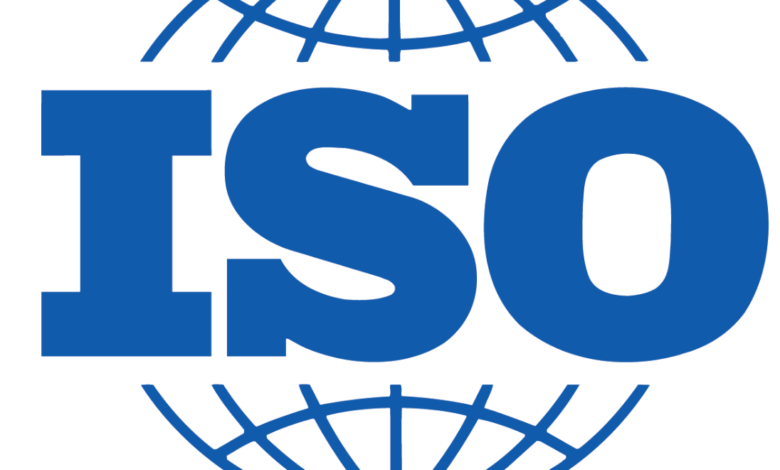ISO Registration In India

ISO (International Organization for Standardization) registration is a certification that an organization receives after successfully implementing and adhering to specific quality management standards. ISO certification provides a framework for organizations to manage their processes, minimize risks, and ensure customer satisfaction. In India, ISO certification is becoming increasingly important for businesses, especially those looking to expand globally. In this article, we will discuss ISO registration in India in detail.
Types of ISO Certification:
There are several types of ISO certifications that a company can opt for. Here are some of the most commonly sought after ISO certifications in India:
- ISO 9001:2015 Quality Management System (QMS) Certification:
ISO 9001 is the most popular ISO certification in the world. This certification is awarded to organizations that meet the requirements for implementing a quality management system (QMS). The QMS certification helps businesses enhance their customer satisfaction by providing a framework for consistently delivering quality products and services.
- ISO 14001:2015 Environmental Management System (EMS) Certification:
ISO 14001 is a certification that helps organizations manage their environmental impact. The EMS certification provides a framework for identifying and managing environmental risks, reducing waste, and minimizing the impact of operations on the environment.
- ISO 45001:2018 Occupational Health and Safety Management System (OHSMS) Certification:
ISO 45001 is a certification that helps organizations manage their occupational health and safety risks. The OHSMS certification provides a framework for identifying and managing risks, reducing workplace accidents and injuries, and promoting employee health and well-being.
- ISO 27001:2013 Information Security Management System (ISMS) Certification:
ISO 27001 is a certification that helps organizations manage their information security risks. The ISMS certification provides a framework for identifying and managing risks, protecting sensitive information, and ensuring the confidentiality, integrity, and availability of information.
Process of ISO Certification:
The process of ISO certification in India involves several steps, as follows:
Step 1: Selecting an ISO Certification Body:
The first step towards getting an ISO certification is selecting an ISO certification body. The certification body should be accredited by an independent accreditation agency, such as the National Accreditation Board for Certification Bodies (NABCB) or the Joint Accreditation System of Australia and New Zealand (JAS-ANZ).
Step 2: Developing a Quality Management System:
The next step is developing a quality management system (QMS) that meets the requirements of the ISO standard you are seeking certification for. The QMS should cover all aspects of your organization’s operations and should be documented in a quality manual.
Step 3: Implementing the Quality Management System:
Once the QMS has been developed, it needs to be implemented across your organization. This involves training your employees on the QMS and ensuring that everyone is aware of their roles and responsibilities.
Step 4: Internal Auditing:
After the QMS has been implemented, an internal audit needs to be conducted to ensure that the QMS is working effectively. The internal audit should be conducted by someone who is independent of the QMS implementation team.
Step 5: Management Review:
After the internal audit has been conducted, a management review needs to be carried out. The management review should assess the effectiveness of the QMS and identify any areas for improvement.
Step 6: Certification Audit:
The final step in the ISO certification process is the certification audit. The certification audit is conducted by an external auditor from the ISO certification body. The auditor will review your QMS documentation and conduct an audit of your organization’s operations to ensure that they meet the requirements of the ISO standard.
Benefits of ISO Certification:
There are several benefits to getting ISO certification, including:
Improved Credibility:
ISO certification is a mark of quality that is recognized around the
world. Having an ISO certification can improve your organization’s credibility and reputation among customers, stakeholders, and investors.
Increased Efficiency:
Implementing a quality management system as part of the ISO certification process can help improve the efficiency of your organization’s operations. By identifying and eliminating waste, optimizing processes, and reducing errors, your organization can save time and money while improving quality.
Better Risk Management:
ISO certification requires organizations to identify and manage risks associated with their operations. This can help organizations avoid costly mistakes and reduce the likelihood of accidents or other incidents.
Improved Customer Satisfaction:
By implementing a quality management system and adhering to ISO standards, organizations can improve the quality of their products and services. This can lead to increased customer satisfaction, loyalty, and repeat business.
Access to New Markets:
In many industries, ISO certification is a prerequisite for doing business with certain customers or entering new markets. Having an ISO certification can open up new opportunities for your organization and help you compete more effectively.
Costs of ISO Certification:
The cost of ISO certification in India can vary depending on several factors, including the type of certification, the size of your organization, and the certification body you choose. Generally, the costs associated with ISO certification include:
Certification Body Fees:
The certification body charges a fee for conducting the certification audit and issuing the certificate. The fees can vary depending on the certification body and the type of certification.
Consultant Fees:
Many organizations choose to hire a consultant to help them develop and implement their quality management system. Consultant fees can vary depending on the scope of the project and the consultant’s experience.
Training Costs:
Training your employees on the quality management system can also add to the overall cost of ISO certification. The cost of training can vary depending on the size of your organization and the level of training required.
Internal Resource Costs:
Implementing a quality management system requires time and resources from your organization. This can include the cost of staff time spent on developing and implementing the QMS, as well as the cost of any equipment or software required.
Conclusion:
ISO certification is an important step for organizations looking to improve their quality management systems, manage risks, and enhance customer satisfaction. While the certification process can be complex and involve some costs, the benefits of ISO certification can be significant. By improving credibility, efficiency, risk management, and customer satisfaction, ISO certification can help organizations succeed in today’s competitive business environment.





